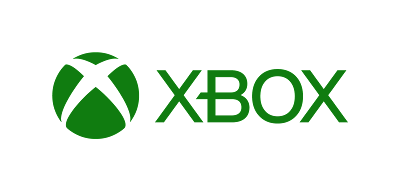Tech Roundup: Microsoft's Activision Blizzard Purchase, U.S. Targeted Ads Legislation & More
[A recurring feature on the latest in Science & Technology.]
- Microsoft sets record for the biggest tech deal ever following its plans to acquire scandal-hit video game publisher Activision Blizzard for almost US$ 69 billion, topping Dell-EMC merger in 2016 for US$ 67 billion; the seismic deal, if approved by regulators, is set to vertically integrate Microsoft's Xbox console business, which already owns huge game franchises like Minecraft and Halo, with one of the world's most valuable gaming companies, which owns giant titles like Call of Duty, World of Warcraft, and Candy Crush, making it the world's third-largest gaming company by revenue, following Tencent and Sony.
- Barring a damaging antitrust case in 2001, Microsoft has almost successfully sidestepped the recent antitrust criticism directed at tech companies like Amazon, Apple, Google and Meta. But with subscriber numbers for Microsoft's Xbox Game Pass touching the 25 million mark, up from 18 million in January 2021, the acquisition could potentially raise regulatory red flags for attempting to monopolise the gaming market.
- Apple once again reiterates that regulations proposed to curtail discriminatory conduct by dominant platforms could require major changes to the App Store, including allowing sideloading, and that it would ultimately cause consumers to be targeted with malware, ransomware and scams; Google says that the legislation "could hamper our ability to integrate automated security features if other companies offer similar features" and break "features that help consumers and small businesses."
- The U.S. government begins a review of Alibaba's cloud business to determine potential national security risks, with a focus on how it stores U.S. clients' data.
- Social technology giant Meta files dozens of patents to monetise its metaverse, including a virtual store with sponsored items, and support for eye and face tracking in headsets to enhance the virtual or augmented reality experience.
- Lawmakers in the U.S. unveil the Banning Surveillance Advertising Act, which aims to prohibit targeted ads by data brokers, but exempt broad location and contextual ads; comes as the U.S. Federal Trade Commission and Department of Justice Antitrust Division kick off a process to rewrite merger guidelines for businesses, signaling a tougher stance toward large deals.
- U.S. mobile networks AT&T and Verizon agree to postpone the rollout of their new 5G service at some airports following concerns that the C-Band spectrum 5G wireless signals could interfere with aeroplane navigation systems like radio altimeters, which operate on C-Band adjacent frequencies.
- Twitter expands its misinformation reporting feature beyond Australia, South Korea, and the U.S. to Brazil, Spain, and the Philippines.
- Coinbase partners with Mastercard to let users pay with a credit card in its upcoming NFT marketplace in an attempt to solve "pain points" and classify NFTs as "digital goods."
- Reddit announces a "revamped blocking experience" that "not only removes a blocked user's content from your experience, but also removes your content from their experience — i.e., a user you have blocked can’t see or interact with you."
- E-commerce platform Shopify partners with JD.com to help U.S. merchants sell goods in China.
- Google winds down YouTube Originals, its original video content group, six years after it founded the initiative to develop exclusive, original content for the pay-per-month YouTube Premium service.
- Samsung unveils its 4nm Exynos 2200 SoC with an Xclipse GPU using AMD's RDNA 2 architecture, offering hardware-accelerated ray tracing and variable rate shading.
- Apple ships an estimated 22% of global smartphones in Q4 2021, down from 23% in Q4 2020, followed by Samsung at 20%, Xiaomi at 12%, Oppo at 9%, and Vivo at 8%.


Comments
Post a Comment